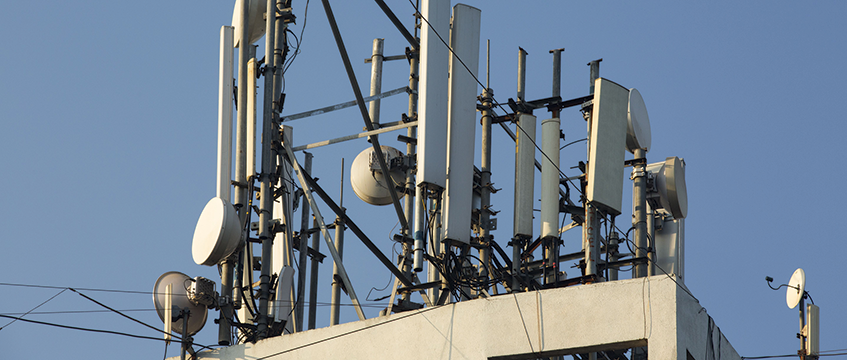On 8 January 2020, District Judge Wilson gave judgment in Vodafone Enterprise UK v Portsmouth Water Ltd and another (Portsmouth Water) (unreported, Portsmouth County Court). Despite not being a widely known judgment, it clarifies the court’s position that the correct valuation basis to be used for a renewal of an existing electronic communications lease under the Landlord and Tenant Act 1954 (1954 Act) is section 34 of the 1954 Act, not paragraph 24 of the Code.
Those familiar with the new Electronic Communications Code which came into force on 28 December 2017 as Schedule 3A of the Communications Act 2003 (the Code), will be aware that the provisions of the Code include, among other things, that:
- operators have automatic rights to share and/or upgrade apparatus provided that there is no more than a minimal adverse impact on the site’s appearance and this imposes no additional burden on the other party to the agreement;
- landowners cannot prevent the assignment of Code agreements between operators and the only condition landlords can impose is the requirement for an authorised guarantee agreement; and
- the valuation calculation, including what is commonly referred to as the “no network” assumption, means that valuations under the Code are lower than under the 1954 Act.
But what valuation mechanism should be used in the renewal of an existing 1954 Act protected lease?
The deputy president of the Upper Tribunal, Martin Rodger QC, gave some guidance on this in Cornerstone Telecommunications Infrastructure Ltd v Ashloch Ltd and another [2019] UKUT 0338 (LC); [2019] EGLR 2 (Windsor House), confirming that existing 1954 Act leases with operators are to be renewed under the 1954 Act’s usual statutory mechanism in the County Court. Thereafter, once the new lease completes, it becomes an agreement protected by the Code and without the statutory protection of the 1954 Act.
One question the Upper Tribunal’s judgment did not determine was the key one of the legal valuation basis, although it provided some obiter guidance that “rents agreed in the shadow of the no-network assumption might be of limited assistance”.
Facts
Vodafone Enterprise UK (Vodafone) is the tenant of an existing electronic communications site in Portsmouth. The site consists of a 47m high mast which Vodafone shares with other operators.
The contractual term of Vodafone’s lease expired on 1 June 2011 but its tenancy continued pursuant to section 24 of the 1954 Act. Vodafone issued 1954 Act proceedings for a new lease on 3 November 2017. APW Wireless (II) UK Ltd (APW) became the competent landlord on 31 July 2019 and was joined to the court proceedings on 10 October 2019.
The parties had agreed the appointment of a single joint expert to provide a valuation report. An agreed letter of instruction was sent to the single joint expert asking him to provide his expert opinion on the level of rent and interim rent under sections 34 and 24 of the 1954 Act. Shortly thereafter, a dispute arose between the parties as Vodafone unilaterally required the single joint expert to undertake a valuation under paragraph 24 of the Code. APW issued an application for the court to determine the appropriate legal basis for the single joint expert’s valuation.
District Judge Wilson commented during the hearing that “…there is a world of difference between… Code valuations … and Landlord and Tenant Act 54 valuations which have taken place against the background of the Code…” and confirmed in his judgment that:
- “The simple point here is this: That if the valuation proceeds under the Code then the reality is this, that the reward, if I may put it that way, in the form of the rent for the Second Defendant will be less than if the valuation is undertaken under the Landlord and Tenant Act of 1954. That is because the telecoms value is ignored under paragraph 24 of the Code.”
- “…there must be no confusion as to the valuation that he is carrying out. It is clearly not a valuation under the Code and that message needed to be imparted clearly and unequivocally to the expert.”
- “…I repeat, that the Code is relevant when it comes to the question of the comparables. However the valuation remains a valuation under the 1954 Act. That needs to be made clear to the valuer”.
The judgment could not be clearer that the legal valuation basis in a 1954 Act renewal of an existing electronic communications site is section 34 of the 1954 Act and not paragraph 24 of the Code. Vodafone’s attempts in this case to “take advantage of having the Code” failed.
Further, as per the deputy president’s comment in Windsor House and District Judge Wilson’s comment in Portsmouth Water; rents agreed in or valuations taken against “the shadow” of the Code might be of limited assistance.
Implications
This judgment is good news for landowners being faced with derisory offers of new rents from operators, some as low as £2.96 and 51p per annum, making it clear that on a 1954 Act renewal the usual 1954 Act rules apply and a landowner will get a market rent for the new lease term.
It may be said that all this will result in is operators seeking a shorter term or a break clause to then be able to swiftly renew under the Code. However, the usual test for changes to existing terms on a 1954 Act renewal applies and it is for the party seeking the change to justify why it is necessary. It remains to be seen whether an operator can justify a shorter term on the basis that it wants to “take advantage of having the Code” but based on this recent judgment, that may be difficult for them.
Karen Mitchell is a senior associate and Thekla Fellas is a partner in the real estate disputes team at Eversheds Sutherland








